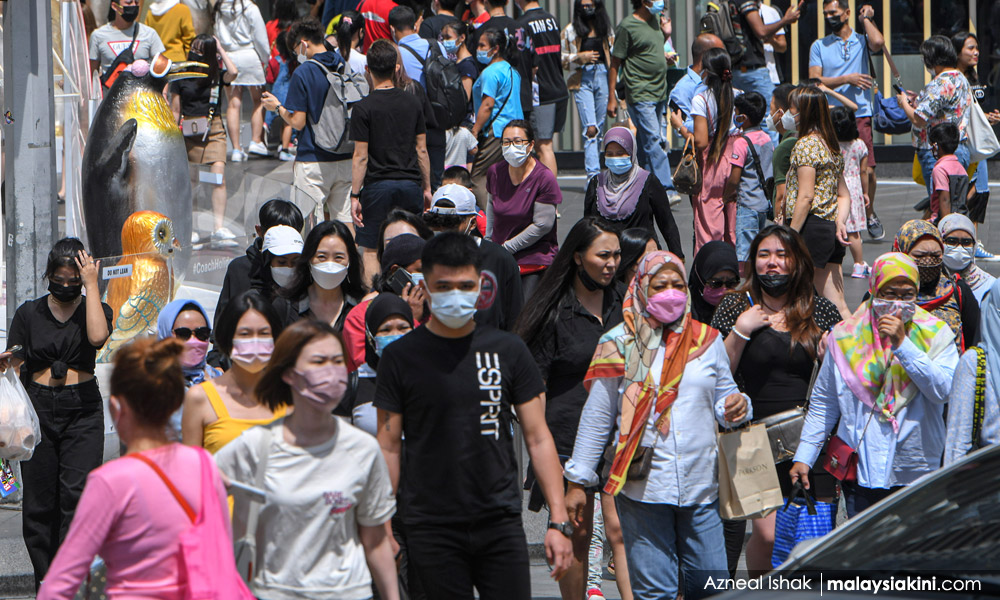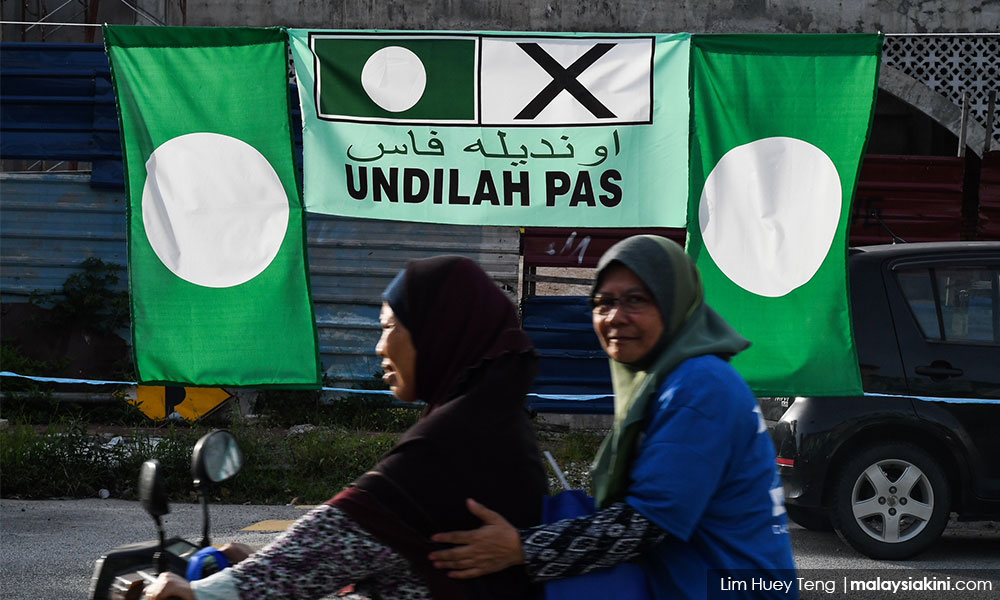Bersatu Youth chief Wan Ahmad Fayhsal Wan Ahmad Kamal is one of the few brave ones. In the past, if you were a youth leader of a race-based party, you needed to expound racial ideas in ways more extreme than your senior party leaders. Chest-thumping, fist-raising, chant-howling at a general assembly – that's how you stood out.
But this has changed in the past few years. Youth leaders have shifted from discussing the simplistic, deadened concept of race to more important youth-related issues like employment, cost of living, and housing.
That's why Wan Fayhsal (above) is one of the last few brave ones who still peddle the outmoded style of politics when he said Malays needed a "protector". He explained that this was the reason Bersatu did well in the recent state elections – they provided the "comfort zone" other opposition parties did not give.
After being criticised by many, he released a series of videos to expound his arguments further and said that even the Chinese have the same "protector" issue in DAP. He even pulled out a few old books, including Chandra Muzaffar's Protector and Firdaus Zainal's Hegemoni Umno, to prove his point.
Then I remembered that Wan Fayhsal is also our deputy minister for national unity. Suddenly his thought process and governing philosophy became consequential.
I wanted to find out whether what he said was true. High-level sociological theorising is not enough. We need real data from surveys conducted with the people on the ground.

Identifying more with religion, country
By accident, I stumbled upon a survey by Merdeka Center and Ideas that was just published last week. Between Feb 24 to March 20 this year, they asked 1,202 adult respondents their views on race. What they have found is powerful.
On the part about racial attitudes, the survey started by asking what they most identified with. Surprisingly, most respondents identified with their religion and country more than their race. This may appear surprising at first if you're a regular reader of political news. If voters don't identify that much with race, why are politicians always talking about it?
When asked further about whether they prefer their community leaders to be of the same race as them, a whopping 66 percent of them thought it didn't matter to them, or they could accept a community leader of another race.
That meant that only 34 percent of the respondents needed a "protector" in the way Wan Fayhsal had described. This is a remarkable finding because it not only disproved the race-based narratives by manipulative politicians but also planted the early seeds of doing away with race-based parties.
After assessing their racial attitudes, they were asked about what to do to improve inter-ethnic relationships. They were also asked a series of sensitive policy questions like creating racially-mixed neighbourhoods, implementing needs-based policies instead of race-based, abolishing vernacular schools, treating all religions equally, and others.
If the "protector" mentality was valid, respondents should express vehement disagreement when the survey asked them whether political parties should be racially-mixed. In other words, would you do away with single-race political parties meant to protect only a single race?
Over 84 percent of the respondents said yes. Only 12 percent of the respondents wanted to maintain race-based parties.
If you take this together with another survey finding I quoted in this column nearly a year ago, the picture starts to form itself. Even though we had a Malay-Muslim government led by Perikatan Nasional, Wan Fayhsal's coalition, most Malaysians thought that they didn't advance Islam through their policies.
Only a meagre 38 percent of the respondents thought that a religious party like PAS had improved pro-Islam policies after joining the government.

Making progress on overcoming racism
What does this mean? Over the years, through corruption, abuse of power, deception, lies, and talking down to the people, most Malaysians have finally seen through politicians. Most voters today, especially the youths, severely distrust politicians.
Any ordinary Malaysian will tell you that their experiences with other races are much better than what elite politicians made it up to be.
The more contact they have with other races, the more they realise the stereotypes and fears supplanted by politicians to our minds were untrue. They were meant to serve the singular purpose of making voters dependent on them, consolidating power at the expense of our long-term interethnic well-being.
Does this mean that we have overcome racism in Malaysia? Far from it. In the same survey, respondents still talk about being unfairly treated because of their race, and we still could not agree on many sensitive topics like vernacular schools, fair competition, and religious policies.
This dataset is not to disprove Wan Fayhsal's theory by showing a rosy picture that doesn't exist. Instead, it shows that there is ample evidence that we are making progress – however hard it is for us to believe.
History may have revealed our deep imperfections, but we are not prisoners of our past. - Mkini
JAMES CHAI is a political analyst. He also blogs at www.jameschai.com.my and he can be reached at jameschai.mpuk@gmail.com.
The views expressed here are those of the author/contributor and do not necessarily represent the views of MMKtT.



No comments:
Post a Comment
Note: Only a member of this blog may post a comment.